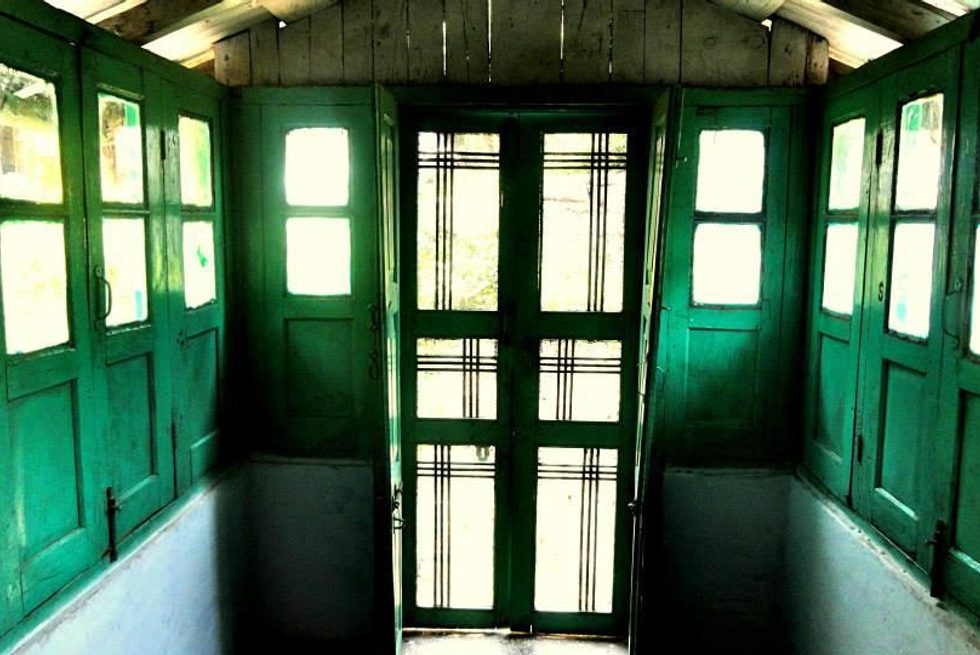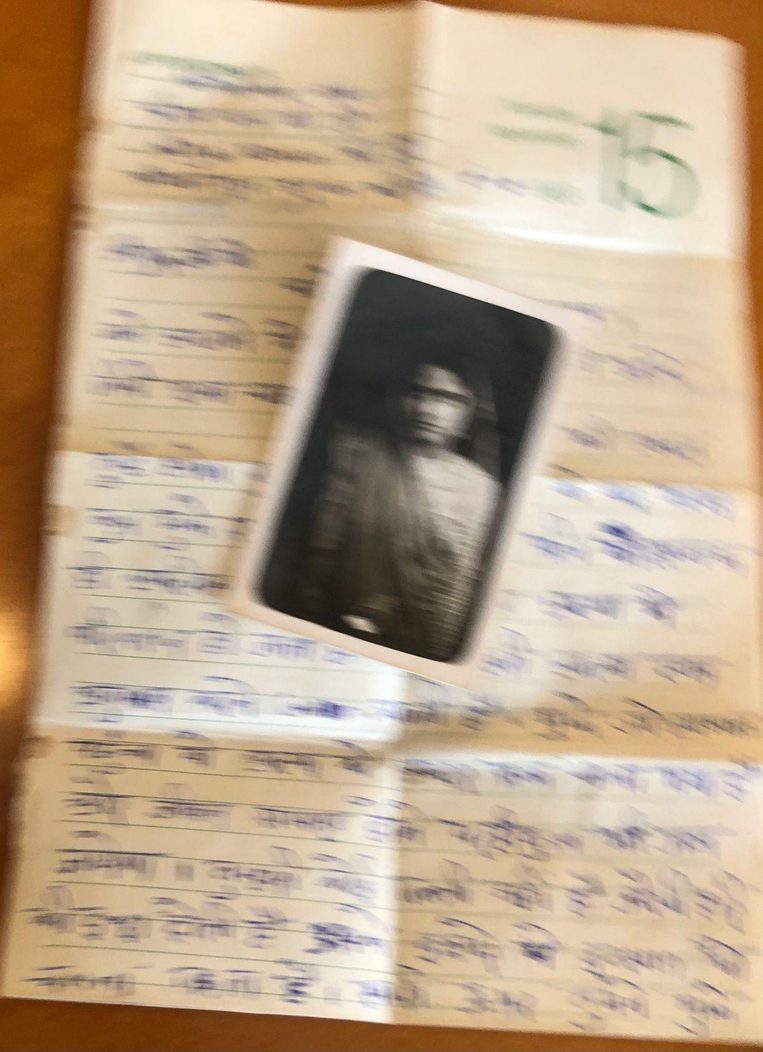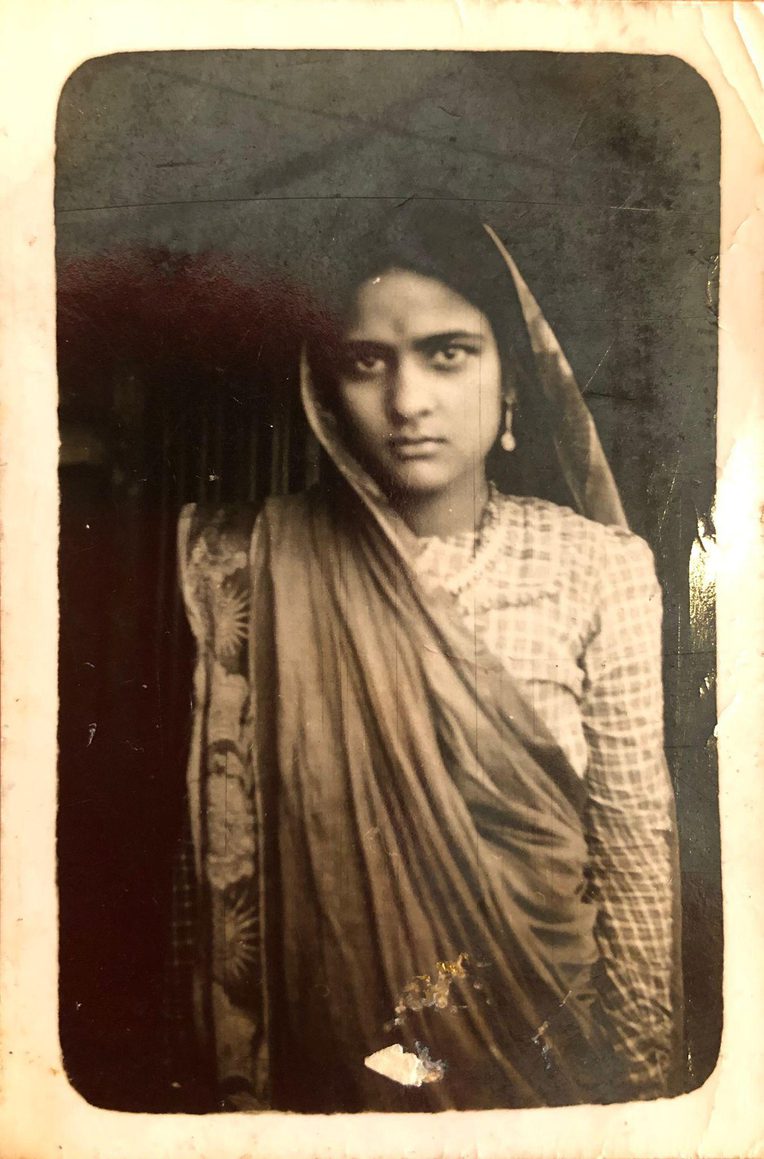What I Didn’t Tell You
From the Series: Un/tracing Empire: Pollinations between the Poetic and Ethnographic
From the Series: Un/tracing Empire: Pollinations between the Poetic and Ethnographic

What I didn’t tell you
Was that three years before I was born
My mother’s mother wrote a letter
To no one in particular
Because it was addressed
to all the gods she loved and feared
That I found when I was a storyteller
Among her other letters
About which I told a story

Before I was an ethnographer
I was a storyteller
Of so much, I didn’t know about
And of which I only knew stories
I had heard others tell some
Some others had come by me
Some I made up
And some I never told
And they lived and grew inside me
What I didn’t tell you
In the story, I told about her letters
Is that this letter
Was the only letter she hadn’t sent
To anyone in particular
But kept for herself
And if she had sent it out
The story about her would have been different
From the one I told
What I didn’t tell you
Before I was an ethnographer
When I was a storyteller
I walked into stories
Like a toothbrush walking into your mouth
And a comb in your hair
They stayed in my throat and head
Until they walked into each other
And I thought I had made up a story
What I didn’t tell you
Was that many years before I was born
There lived a woman
For however long she did
Whose gaze lingered
Along with the letter that my mother’s mother
Did not send to anyone
And in the darkness of the vanity box where I found the letters
The letter, her gaze and the paper dust seeped into each other
What I didn’t tell you
Was that I don’t know who that woman is
And that I have never asked about her
Sitting alongside that letter
I am afraid to know what she knows
And if she knows only as much as I did
As a storyteller before I was an ethnographer
That paper dust and photo light
Glaze the story I told

What I didn’t tell you
Is that in the many stories that make up a story
Which never ends in the way that a book does
I paused a story without stopping it
As a storyteller before I was an ethnographer
I stop now before I pause
When I run into stories
For it is only story-like to say
What I didn’t tell you
In January 2020, my first novella, Lachchhi: The Newness of Nostalgia was published in Hindi by Vani Prakashan, and as an audiobook by Storytel in November 2020. The writing of this book accompanied me through my research journey and became integral to my ethnographic experience if not my dissertation. While living alone in my (maternal) grandparents’ home in the Indian Himalayas in 2014, I chanced upon letters that they wrote to each other, and mostly the letters that my grandfather had written to my grandmother, which she had preserved carefully in a vanity box in her cupboard. Those letters obsessed me because they made me see so much of their life in a way I could have not imagined otherwise. They also became the lighting spark for what eventually became Lachchhi over the next few years. I took them everywhere with me as I traveled, moved, lived, and dwelled. There was one letter however that I kept closest to me, it still stays in my wallet, that I never wrote about. While I found it in the same pile of letters that my grandparents exchanged, there was also a photo of a woman I have never known, secured in its creases. That letter is a story I have not told along with the other stories I told of the other letters. Like all stories, the story of Lachchhi is fragmented. It is not entirely mine to tell. In the years between finding the letters, the letter and ‘becoming’ an ethnographer, the letter and the image, come to me in flashes. I have lived with them, intimately carrying them everywhere I go as awkward artifacts and uncomfortable reminders of the double lives of stories and ethnographies. When do stories remain stories, and when do they transform within an ethnography? While stories of people, places, and things fulfill my world, I am no longer bound to them only as stories for they appear to me with their befores and afters, their thats and thens and their what ifs. That image of the woman in my wallet compels me to encounter the strangeness of what I may have otherwise weaved into a story that I could tell myself and others. That letter that I have read a few times but never written about compels me to think of the silence as a story, and what to make of it when you are telling a story that is not yours.
Bio:
Bhoomika Joshi is a doctoral candidate in Anthropology at Yale University writing her dissertation “Attachments to Hurt: The Intimate Economy of Mobility and Enterprise.” It describes how a gendered politics of hurt is crucial to the risk economy of entrepreneurship and centers on the contradictions of hurt as a social fact. She is interested in researching experiences of contradiction, intimacy and risk in social life at large, and in the ambivalence of practices like astrology that sit between science, religion, and faith in particular for her future research. She is a bilingual writer and translator and an embroidery artist. Her debut novella is Lachchi: The Newness of Nostalgia, published by Vani Prakashan in 2020.